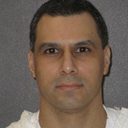The North Carolina Medical Board, which licenses and disciplines doctors in the state, has unanimously voted to make it unethical for a physician to participate in executions. Under the new policy, doctors and nurses employed by the prison system won’t be desciplined for “merely being ‘present’ during an execution,” but are forbidden from administering the lethal drugs or physically assisting with the execution.
The North Carolina Medical Board ruling comes as the state continues its debate about the humaneness of its lethal injection protocols. Defense attorneys have argued that only anesthesiologists or trained medical professionals can tell if an inmate is unconscious before being put to death. They argue that the state’s protocol could result in an inmate waking up during the procedure but being paralyzed and unable to express pain before dying. Currently, the North Carolina Department of Corrections uses a brain wave monitor and heart monitor to evaluate the status of a person being executed. The machines are watched from a small viewing room established for doctors or nurses who are employed by the prison system.
North Carolina is scheduled to execute Marcus Robinson on January 26, but Robinson’s attorneys have asked a court and the governor to halt the execution due to the on-going lethal injection challenges.
(Associated Press, January 18, 2007). See DPIC’s lethal injection Web page.
UPDATE: The execution of Marcus Robinson and another North Carolina inmate scheduled for execution, James Thomas, were stayed by a state judge on January 25 because the state had made changes to its execution process without getting the necessary approval. (News & Observer, Jan. 25, 2007).


